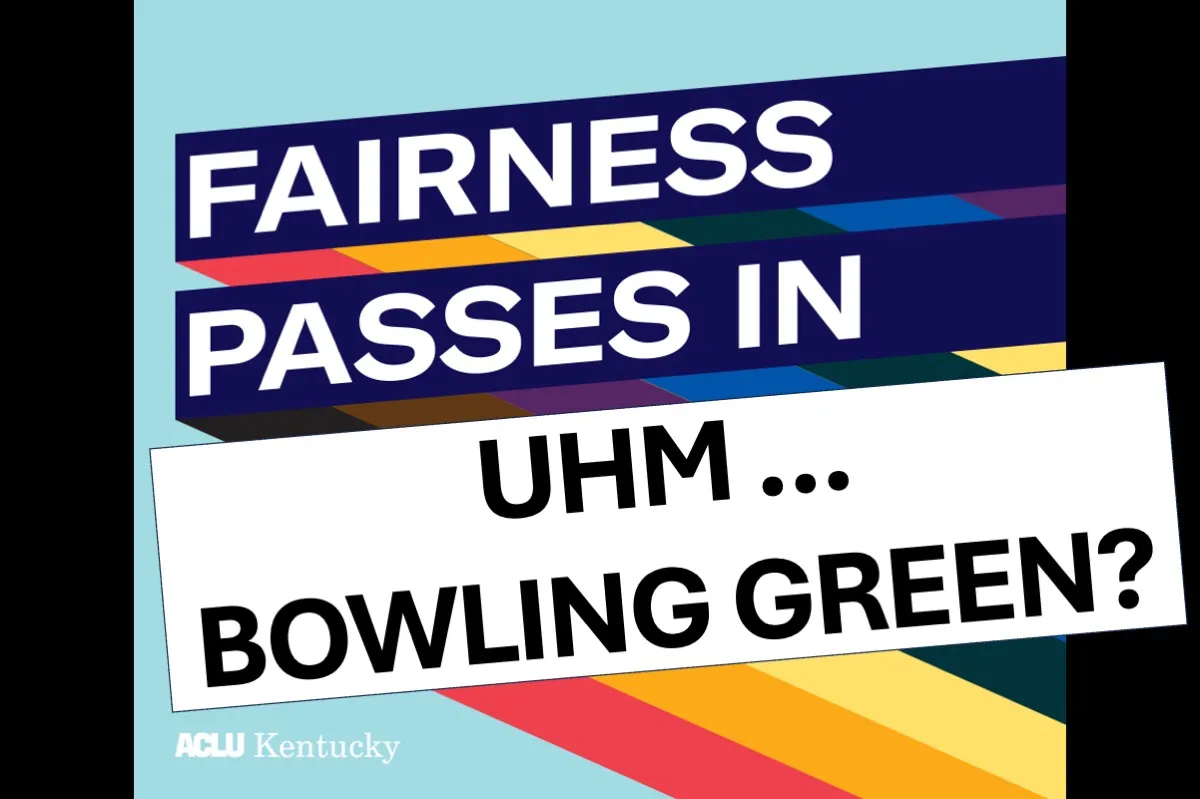This year marks the 25th anniversary of Louisville passing a groundbreaking fairness ordinance. Kentucky’s largest city was first in the state to enact a local law giving protections to members of the LGBTQ+ population in the areas of housing, employment, and public accommodations.
LGBTQ advocates in Bowling Green hoped their city would soon follow, but that’s not been the case. That could change, depending on the outcome of the city’s mayoral race this fall. The incumbent mayor’s challenger has carried the local flag for fairness since 1999.
During Bowling Green’s inaugural Pride festival in 2017, Patti Minter led a march to City Hall in support of a local fairness ordinance.
“Today, we’re here to celebrate the journey from Stonewall to City Hall,” Minter shouted into a megaphone outside of Bowling Green City Hall.
Her grassroots movement to extend civil rights protections to the LGBTQ+ community actually began 25 years ago. Minter wrote her first letter to the Bowling Green Human Rights Commission in 1999, urging local elected leaders to follow in the steps of Louisville.
“So it’s past time that Bowling Green passes a fairness ordinance to ensure everyone here has equal rights and basic human dignity,” Minter said in a recent interview with WKU Public Radio.
Since Louisville took the lead in 1999, 24 cities and one county have passed local ordinances. But not Kentucky’s third-largest city.
“For me, we’re trying to solve a problem we really just don’t have,” Bowling Green Mayor Todd Alcott suggested.
Alcott is a Republican seeking re-election to the non-partisan seat. During his four years in office, a fairness proposal hasn’t been brought up for a vote before the city commission.
“The only complaints I’ve received are people wanting us to pass a fairness ordinance, and I have a litany of emails asking for it, but within all those emails, there’s not a single person not getting housing, not getting a job they’re pursuing,” Alcott told WKU Public Radio. “There’s not a single issue of a person being ridiculed because for their gender or sexuality.”
Without a fairness ordinance, there’s no official body to investigate complaints. The Bowling Green Human Rights Commission currently doesn’t keep a record of complaints, so Minter says it’s hard to put a number on allegations of discrimination.
“It really is a circular argument to say that nobody’s complaining,” said Minter. “People don’t complain to people they know don’t support them.”
Read the rest at Louisville Public Media.







